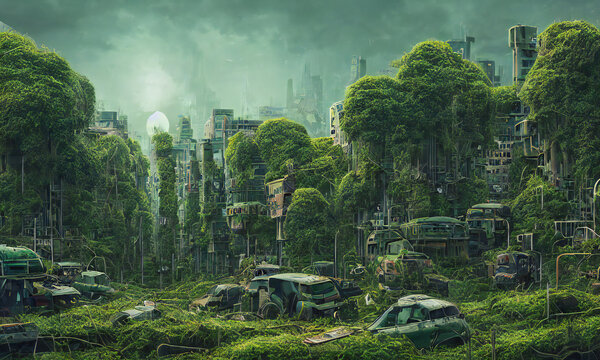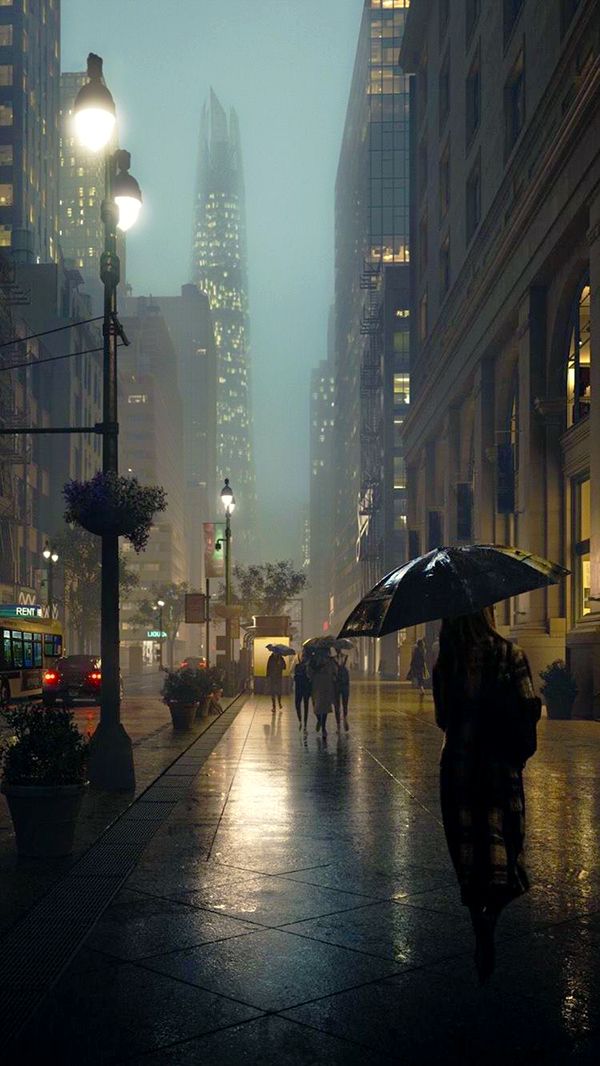Arya Dole (9) | STAFF REPORTER
I visited a city once when I was younger. The image of its streets still burdens me, and often I wonder what it is like now. Others older than me warned me not to go and told me that what I would see would weigh on my mind for my entire life. But I was still a kid, 20-something years old, seeking out the adventures in life. I didn’t know any better. It was supposedly a city transformed beyond recognition, shaped over time until it gave into darkness. The spectre of its past problems still haunted this metropolis. The drugs, homelessness, violence – all still there, but worse, as I later learned. When I recall the city now, I wonder how beautiful it used to be when it had a different face, with a different heartbeat. To think about the past seems ironically dystopian.
The skyscrapers now stretched towards the heavens, their surfaces adorned with shimmering, self-repairing nano materials. Bustling drone-filled skies zipped overhead. A symphony of beeps and holographic ads filled the air, and at first glance, the city seemed too good to be true. But amidst this technological marvel, there was a darkness, a stain that seemed impossible to erase.
The most vivid snapshot of the city all these years later was the alleys—specifically, one particular one. At any time of day, the alley is filled with people. Many people. In fact, the whole alleyway was just people – people sleeping, people wandering, people talking to themselves. I saw a misshapen lump of a bright blue sleeping bag. I saw empty elixir bottles, electronic vapes, and people in old, dirty clothes. The syringes littered the ground, neon green liquids still dripping from them. Drunk mumbles and loud talking echoed off the walls, becoming a jumble of words that make no sense. Some wandered, tripping over their feet, loudly talking about illogical things. Some stood still, looking blankly into space, looking detached from reality. I still wonder what they must have been thinking about. Or if they were thinking about anything.
I see a man who I remember the most. With the fleeting glance I caught of him, I saw that he was blond, his face deeply etched with forehead lines. His cyber-enhanced limbs were now corroded and worn. He must have been younger than 30, but he looked like he had seen enough for a lifetime. He stumbled into a corner of a brick wall and tried to use a flickering lighter to light a pipe. The pipe was glass and cylindrical with a sphere at the end. I have no idea what it was, being naive and still inexperienced. Later, I learned it was a pipe used for smoking all sorts of chemical enigmas. His attempts at lighting it seemed futile and shaken, but it seemed like lighting that pipe was the most important thing in the world to him. This man is a quiet kind of broken, like shattered glass that no one saw breaking.
The next man was louder and attracted much more attention; he was the active motion of breaking glass. This time, I know seeing him will not only be a vivid memory for me but also for the teenage girl who walked next to me. I think to myself if she, 40 years later, still thinks about seeing that man as much as I do. The man was likely drunk, and he staggered onto the street of a busy intersection. It is dark, so cars would only be able to see his shadowy figure illuminated by the streetlamp. Did he know his life was in danger? Did he know what he looked like to the kid next to me? He flung his arms around, long hair flying everywhere. He looked like a thread swiftly unraveling and about to snap. I hear a string of swears directed at the government. I distinctly recall my brain short-circuiting then, my legs simply refusing to move. I still don’t remember how I got out of that street – I only remember him.
Thinking about it now, I can’t help being struck by the fragility of the unhoused people’s existence (now crudely called “street people” by the younger generation). Their faces, etched with stories of despair, betrayed the cruelty of addiction and hardship. I listened to their voices, once hopeful and full of dreams, now resigned to whispers of despair. Inhabitants of this city were drawn to the drugs because of their whispering promises of euphoria, escape, and freedom. In the end, though, the users are in a self-created jail, themselves being both the prisoner and warden of it.
When I took a portal back home a week later, my heart was heavy with a mixture of awe and despair. It still is. I can’t help but wonder if, amid our technological achievements, we had truly moved forward. Perhaps the most significant advancement that remained to be made was not in our mastery of science but in our ability to care for one another. The real importance lies in the action of mending the broken, giving resources, and offering solace to those who had been left behind in the dazzling wake of progress.


